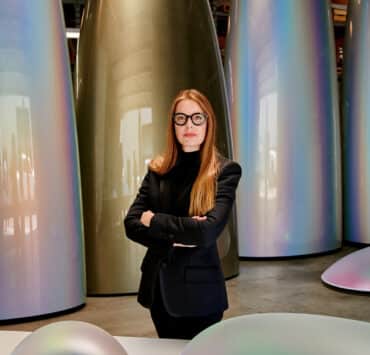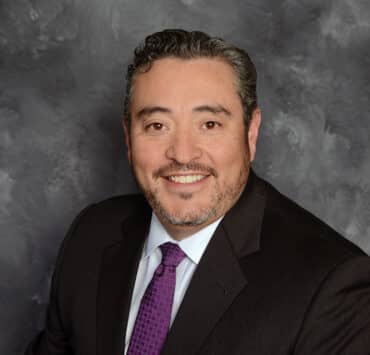|
Getting your Trinity Audio player ready...
|
I grew up in Mexico City as the grandchild of Jewish immigrants who were lucky to leave Europe before the onset of WWII. In school, I learned Hebrew and Yiddish as well as Spanish—but in third grade, I was called to the principal’s office along with my parents. I quickly realized that the likelihood of my moving on to the fourth grade was not the only matter under discussion. The school felt that I was holding back the entire class, since I couldn’t read at the minimum expected level.
Perhaps with the best of intentions, the principal told my parents, “It is sad to see someone as intelligent as your son with no prospects of finishing grade school. Even with private tutors, I don’t see how your son will be able to make it.”
I remember this conversation vividly: dyslexics always remember becoming aware of their neurodivergence.
“It is not enough to accept that neurodivergent lawyers exist. We must take action to ensure that the legal profession includes, welcomes, and embraces those attorneys for all that they are and can do.”
Salomon Chiquiar-Rabinovich
This was the 1970s. The initial awareness of learning disabilities had just emerged in Mexico, and educators were puzzled by cases of talented children who were willing to learn yet could not decode language or keep up with the reading abilities of their classmates. Students like me were characterized as estudiantes de lento aprendizaje (students with low learning capacity). “Dyslexia” did not attach to me as a label until I started high school, where I struggled to keep my head above water but realized I could still learn from non-written language (spoken words, pictures, and diagrams were my primary mediums for building knowledge). I relied on my after-school tutors to duplicate what I was supposed to learn during the day and compensated for my slow reading skills by memorizing and understanding the main ideas of what I had to learn. My reading ability eventually improved slightly, but no one expected me to continue my education after high school.
My breakthrough came when I was formally diagnosed with dyslexia. In the summer of 1977, I was sent—by myself—from Mexico to the Pennsylvania Vision Institute (PVI) in Pittsburgh for intensive developmental vision training sessions.
Thanks to a follow-up summer at PVI in 1979 and at-home tutoring, I was able to excel in school. My performance was so improved that I finished first in my class and, in 1981, was admitted to the Georgetown University School of Foreign Service. Upon graduating, I stayed at Georgetown to complete a four-year joint JD and master’s in international affairs.
Dyslexics depend on solid alliances. I was fortunate to have the accommodations I needed at Georgetown, which were provided by the Georgetown Law dean of students, Everett Bellamy. He remained my ally as I began my career as an immigration attorney and as the realities of having to compete against neurotypical attorneys put my resilience to the test.
While there was some acceptance of my neurodivergence—a general awareness that some attorneys thought and performed differently than others—the legal industry did not seem to realize that those differences could actually offer unique benefits. That those differences should be appreciated.
“We cannot do this by ourselves. We need DEI professionals to incorporate neurodiversity into DEI initiatives and programs.”
Salomon Chiquiar-Rabinovich
Unfortunately, that status quo has largely persisted, and the legal industry has yet to fully embrace the great value that neurodivergent attorneys can bring to the community. To increase awareness of this problem, provide support, and offer a safe space for other neurodivergent attorneys, I cofounded the Boston Bar Association’s Attorneys with Disabilities Committee in 2015. The aim of this committee is to give lawyers with disabilities a forum for communication and an opportunity to share resources.
And I am not alone in these efforts. Mariana Bravo (president of the Hispanic National Bar Association), is establishing a Special Committee for Attorneys with Disabilities and their Allies and has asked me to chair this initiative. The primary purpose of the committee will be to advocate for the inclusion of Hispanic attorneys and law students with both visible and nonapparent disabilities. Manuel Cuevas-Trisán (the vice president for HR at Harvard University) is one of the foremost leaders in creating inclusive workplace policies that help neurodiverse professionals feel like they belong. Everett Bellamy, who has become one of my strongest allies as well as a fellow collaborator on DEI (diversity, equity, and inclusion) issues, has returned to Georgetown Law as the head of DEI for the school.
But we cannot do this by ourselves. We need DEI professionals to incorporate neurodiversity into DEI initiatives and programs. We need Hispanic attorneys to position themselves on the front lines of this transformation. And we need law firms and corporations to take advantage of the flexible work environments enabled by the post-pandemic world and find opportunities to make long-overdue changes and accommodations for neurodiverse professionals.
We need those changes for one simple reason: it is not enough to accept that neurodivergent lawyers exist. We must take action to ensure that the legal profession includes, welcomes, and embraces those attorneys for all that they are and can do.
The views expressed in this article are those of the author and do not necessarily reflect the position of Hispanic Executive or Guerrero Media.
Salomon Chiquiar-Rabinovich specializes in business immigration and is of counsel at Moreno Law in Boston. He is the chair of the Hispanic National Bar Association (HNBA) Special Committee for Attorneys with Disabilities and their Allies, founder and cochair of the Boston Bar Association (BBA) Attorneys with Disabilities Committee, and a board member for the BBA DEI Section. He has served as president of the Massachusetts Association of Hispanic Attorneys as well as regional president of the Hispanic National Bar Association. Chiquiar-Rabinovich holds a BSFS, MSFS, and JD from Georgetown University. He is completing an MSLA, with a specialization in DEI, at Boston College.

